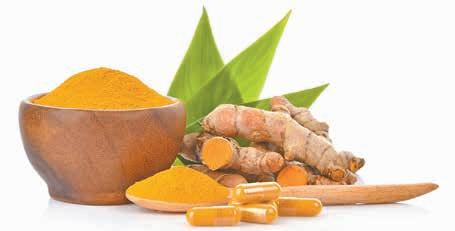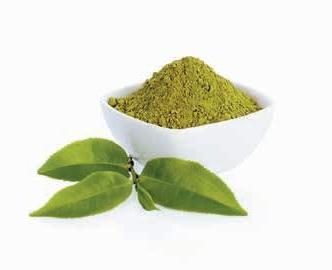
3 minute read
health briefs
from Natural Awakenings Magazine, Palm Beach County Florida March 2021
by Natural Awakenings, Broward and Palm Beach Counties, Florida
Try Ginger to Lower Diabetes Markers

Ginger root (Zingiber officinale), used historically in traditional medicine to treat indigestion and nausea, may also help people with Type 2 diabetes, suggests a new study from Brazil. Researchers conducted a randomized, doubleblind study of 103 people with Type 2 diabetes that were taking medications. Those taking 1.2 grams of ginger powder for 90 days experienced a significant drop in the level of fasting blood sugar, total cholesterol and LDL cholesterol compared to those taking a placebo.
Use Colored LED Lights to Relax
Getting an MRI or CT scan is typically not a relaxing experience, and patient discomfort, anxiety or agitation can affect the quality of the image. Taking note of businesses that use lighting to create a mood, researchers from Pepperdine University demonstrated that patient unease in imaging centers can be modified with the use of colored LED lights. In a pilot study involving 35 subjects, 43 percent found blue lighting most relaxing, while 31 percent preferred yellow. The least relaxing lighting color was red, according to 69 percent of participants, followed by yellow (17 percent) and green (11 percent). Each subject was given a handheld device to set the hue, intensity and brightness of lighting, and most chose blue. No patient preferred the standard bright, white lighting of healthcare environments. “When given the opportunity to change a single aspect of the environmental or imaging facility experience, patients feel much more in control of the otherwise unfamiliar and uncomfortable setting,” write the authors in the Journal of Medical Internet Research.
Ancient trees are precious. There is little else on Earth that plays host to such a rich community of life within a single living organism. ~Sir David Attenborough
Improve Children’s Brain Health with Better Nutrition
In a study with important implications for underfed children in lowincome countries and elsewhere, a new study in The BMJ medical journal found that six months of nutritional supplements can improve working memory and blood flow in children’s brains. Researchers from Tufts University travelled to villages in Guinea-Bissau, West Africa, where they gave 1,059 children, ages 1 through 7 years, a breakfast supplement high in plant polyphenols, omega-3 fatty acids, vitamins, minerals and protein. They compared results with children eating the standard local breakfast of rice or a common lower-quality supplement. They found that the enhanced nutritional supplement boosted cognition and increased cerebral blood flow in children younger than 4 and raised their hemoglobin concentration if they were anemic. Children older than 4 had improved body compositions—more lean tissue and less fat. With at least 250 million children worldwide younger than 5 that are failing to reach their cognitive developmental potential, these results pose significant impacts for children’s education and national development in low-income countries, say the researchers.


Use Green Tea Extract and Curcumin to Ward Off Oral Cancer

Early signs of oral cancer can include white patches, sores and lumps inside the mouth, biomarkers known collectively as oral potentially malignant disorders (OPMD). To see if two natural chemopreventive agents—green tea extract and curcumin—could reverse these conditions, researchers in India tested 60 people with OPMD, splitting them into three groups. One group was given 400 milligrams (mg) of green tea extract in a capsule, as well as a gel; a second group was given 475 mg of curcumin; and the third received a combination of the first two treatments. After 12 weeks, researchers found that the supplementation had significantly reduced OPMD biomarkers in all three groups, with particularly strong results in the combination group, suggesting a synergistic effect.

Try Mindfulness to Improve Cardiovascular Health
Mindfulness training can lower blood pressure and positively influence behavior that promotes cardiovascular health, report Brown University researchers. The study published in
Plos One involved 43 people with hypertension. In eight weekly 150-minute sessions, participants learned mindfulness meditation movements and techniques, including eating food mindfully, while also receiving instruction on hypertension risk factors. By the end of the year, they reported improvements in stress levels, diet, physical activity and alcohol consumption. On average, systolic blood pressure fell by six points and diastolic pressure by one point, a small, but significant improvement.
It’s not whether you get knocked down, it’s whether you get up. ~Vince Lombardi

LAST YEAR’S ISSUE






